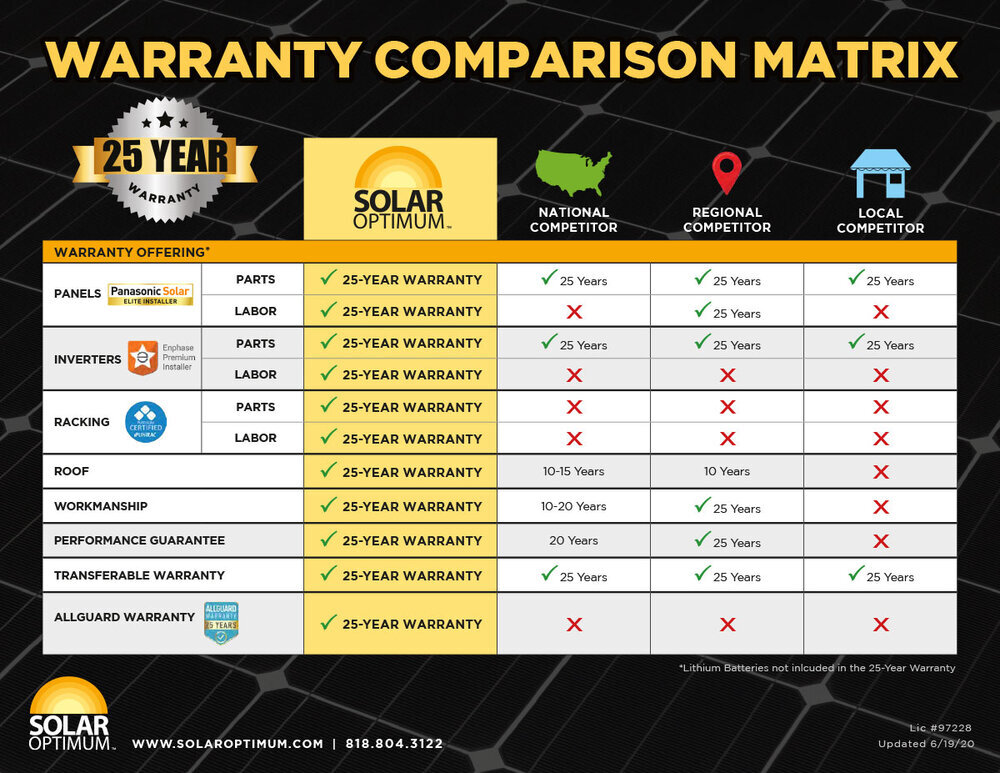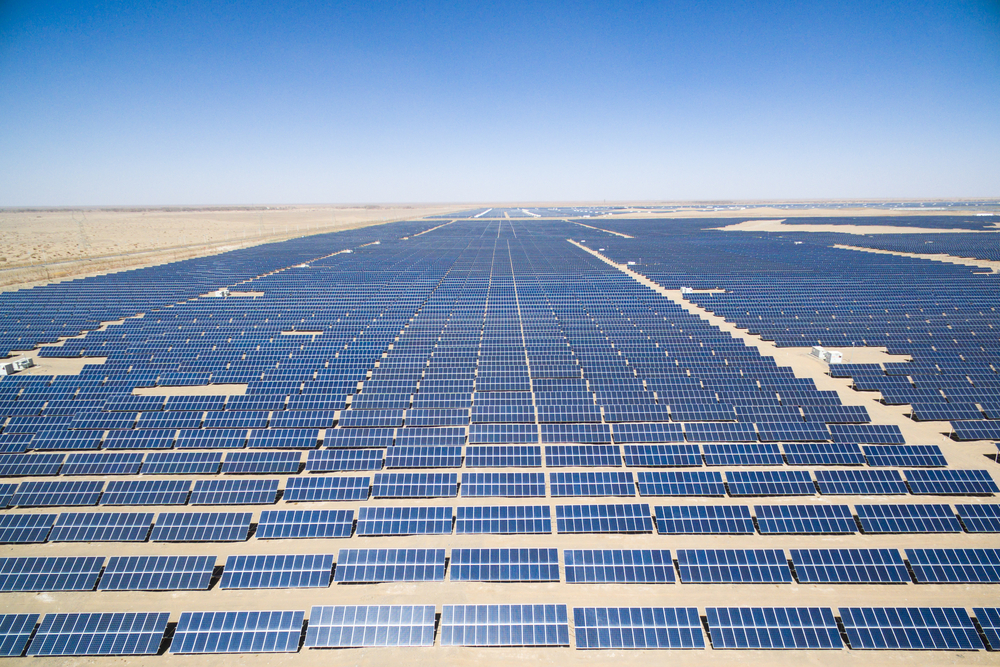Solar panels Texas warranty: Dive into the intricacies of coverage, duration, and claims, ensuring your investment is protected in the Lone Star State.
In Texas, where the sun shines bright, harnessing solar energy is a smart choice. Understanding the warranty coverage for solar panels is crucial to safeguard your investment and maximize your savings.
Solar Panel Warranty Coverage in Texas
In Texas, solar panel manufacturers generally provide comprehensive warranties to protect homeowners’ investments. These warranties cover various aspects of the solar panel system, ensuring peace of mind and financial protection for years to come.
The standard warranty coverage offered by most manufacturers includes the following:
- Performance warranty: This warranty guarantees the solar panels’ ability to generate a certain amount of electricity over a specified period, typically 25 years or more.
- Product warranty: This warranty covers defects in materials and workmanship of the solar panels themselves, typically for 10-12 years.
- Labor warranty: This warranty covers the cost of labor to repair or replace faulty solar panels, typically for 5-10 years.
It’s crucial for homeowners to carefully review the warranty terms before purchasing solar panels. Some warranties may have exclusions or limitations that could affect coverage. Understanding the warranty details can help homeowners make informed decisions and ensure they are adequately protected in the event of any issues with their solar panel system.
Factors Affecting Solar Panel Warranty Duration
The duration of a solar panel warranty is influenced by several factors, including the quality of the panels and materials used, installation practices, maintenance, and environmental conditions.
Panel Quality and Materials
High-quality solar panels made from durable materials, such as monocrystalline or polycrystalline silicon, tend to have longer warranties. These materials are less susceptible to degradation and can withstand harsh weather conditions.
Installation Practices
Proper installation is crucial for ensuring the longevity of solar panels. Warranties may be void if panels are not installed correctly, as improper installation can lead to damage or premature failure.
Maintenance, Solar panels Texas warranty
Regular maintenance, such as cleaning and inspecting panels, can help extend their lifespan and reduce the risk of issues that could void the warranty.
Weather Conditions and Environmental Factors
Extreme weather conditions, such as hail, high winds, or extreme temperatures, can affect the performance and durability of solar panels. Warranties may include exclusions for damage caused by such events.
Comparing Solar Panel Warranties from Different Providers

Evaluating solar panel warranties is crucial for consumers to ensure long-term performance and protection. To assist in making informed decisions, this section presents a comprehensive comparison of warranties offered by leading solar panel providers in Texas.
The table below highlights key differences and similarities in warranty coverage, terms, and exclusions, providing a clear overview of the available options.
Warranty Coverage
| Provider | Power Output Warranty | Product Warranty | Labor Warranty |
|---|---|---|---|
| Company A | 25 years | 10 years | 5 years |
| Company B | 30 years | 12 years | 10 years |
| Company C | 25 years | 15 years | 5 years |
Understanding Solar Panel Warranty Claims

Understanding the process of filing a solar panel warranty claim in Texas is crucial to ensuring a smooth and successful resolution. This section provides a comprehensive guide to the steps involved, documentation required, and common reasons for warranty claims.
Filing a Warranty Claim
- Contact the Manufacturer: Reach out to the manufacturer of your solar panels directly to initiate the warranty claim process.
- Provide Documentation: Gather all relevant documentation, including the original invoice, warranty card, and any inspection reports or repair history.
- Describe the Issue: Clearly articulate the problem with your solar panels, including specific details such as performance issues, physical damage, or any other concerns.
- Submit the Claim: Send the documentation and a detailed description of the issue to the manufacturer for review and processing.
Common Reasons for Warranty Claims
Understanding the common reasons for solar panel warranty claims can help prevent potential issues and prolong the lifespan of your system.
When investing in solar panels for your Texas home, ensuring a comprehensive warranty is crucial. Many reputable manufacturers offer robust warranties for their solar panels in Texas. Additionally, you can explore Solar Panels Texas Buyback: Powering the Lone Star State to learn about buyback programs available in the state.
These programs can further enhance the financial benefits of installing solar panels, providing additional peace of mind and ensuring your investment is protected.
- Manufacturing Defects: Issues caused by faulty materials or workmanship during the manufacturing process.
- Installation Errors: Improper installation or handling of the solar panels, leading to damage or performance problems.
- Environmental Factors: Extreme weather conditions, such as hail or strong winds, can cause physical damage to the panels.
- Electrical Faults: Problems with electrical components, such as inverters or wiring, can affect the performance of the system.
- Natural Degradation: Solar panels naturally degrade over time, leading to a gradual decrease in performance.
By adhering to proper installation and maintenance practices, and understanding the potential causes of warranty claims, you can minimize the likelihood of experiencing issues with your solar panels and ensure their long-term performance.
The Role of Solar Installers in Warranty Coverage

Selecting a reputable solar installer is crucial for warranty protection. They play a vital role in ensuring proper installation and maintenance, which are essential for maintaining the validity of your warranty.
Responsibilities of Solar Installers
- Proper Installation: Installers must adhere to industry standards and manufacturer specifications to ensure the system functions optimally and meets safety regulations.
- Regular Maintenance: They should provide regular maintenance services, such as cleaning, inspections, and monitoring, to prevent potential issues that could void your warranty.
- Warranty Documentation: Installers are responsible for providing you with all necessary warranty documentation and explaining the terms and conditions clearly.
- Communication: They should be responsive to any inquiries or concerns you have regarding your warranty coverage and assist you with warranty claims if needed.
Tips for Finding a Qualified Solar Installer
- Check Credentials: Look for installers certified by reputable organizations like the North American Board of Certified Energy Practitioners (NABCEP).
- Read Reviews: Explore online reviews and testimonials from previous customers to gauge their experience with the installer.
- Inquire about Warranty Support: Ask potential installers about their warranty policies, the process for filing claims, and their track record in honoring warranties.
- Compare Quotes: Obtain quotes from multiple installers to compare their prices, warranty coverage, and customer service offerings.
Last Point: Solar Panels Texas Warranty
Navigating solar panel warranties in Texas requires careful consideration of coverage, duration, and claims processes. By understanding these aspects and partnering with reputable installers, you can ensure the longevity and performance of your solar energy system.
Answers to Common Questions
What is the standard warranty coverage for solar panels in Texas?
Typically, manufacturers offer warranties ranging from 10 to 25 years, covering defects in materials and workmanship.
How does panel quality affect warranty duration?
Higher-quality panels, made with durable materials, tend to come with longer warranties.
What are common reasons for warranty claims?
Defective cells, inverter failures, and environmental damage are common reasons for warranty claims.


